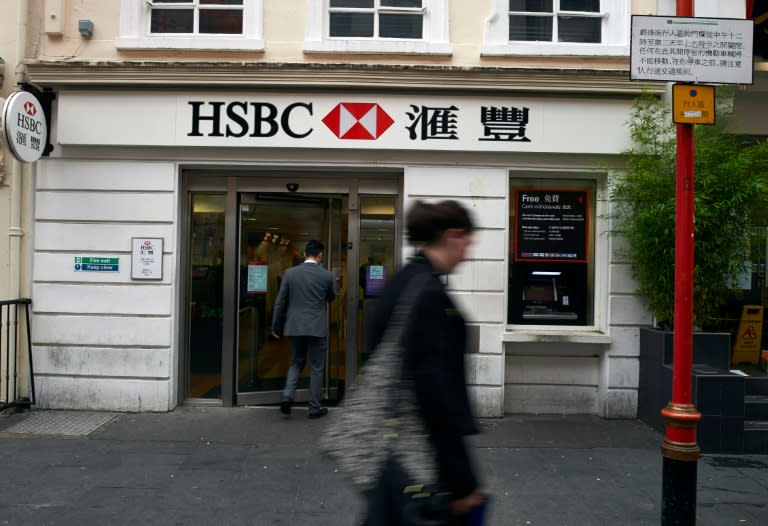HSBC profit drops on market volatility
HSBC on Tuesday said its net profit fell almost a fifth in the first quarter, with Europe's biggest bank hit by "extreme levels" of markets volatility, while bad loans doubled. Equity and currency markets from Asia to the Americas were sent into meltdown at the start of the year as a growth slowdown in China and plunging oil prices fanned concerns about the world economy. In comments included in the earnings statement, HSBC chief executive Stuart Gulliver said the group's performance in the January-March period "was resilient in tough market conditions that affected the entire banking sector". The first two months of the year saw "reduced client activity" in foreign exchange and stocks, with a partial recovery in March, added the British bank that is focused on Asia. HSBC said its net profit fell 18 percent to US$4.3 billion (3.7 billion euros) in the first quarter compared with one year earlier, while revenues were down four percent at almost $14 billion. Bad loans surged $692 million to $1.16 billion year-on-year, related to the energy and mining sectors. HSBC shares rose however, with traders welcoming the group's better-than-expected pre-tax result. The bank added that it was on track to reach cost targets after a radical overhaul announced last year. "It’s tough out there for banks, and HSBC is no exception, particularly seeing as it is increasingly focusing its business on Asia, which is a weak market right now," said Laith Khalaf, senior analyst at London-based stockbrokers Hargreaves Lansdown. "However... things weren't quite as bad at HSBC as investors had feared." Although pre-tax profits were down 14 percent at $6.1 billion, the result beat analysts' consensus forecast of $4.3 billion. In early London deals, HSBC's share price was up 0.3 percent at 454 pence. The capital's benchmark FTSE 100 index was down 0.6 percent overall. HSBC last year announced a radical overhaul to cut costs that included shedding 50,000 jobs worldwide, exiting unprofitable businesses and focusing more on Asia. Gulliver said there was growing momentum in the bank's Asia businesses, with "strong business wins" after HSBC's investment in the region. But, like many global banks, it has continued to face turmoil in global financial markets, while stricter regulations have driven up costs. "One of the headwinds HSBC has been battling is a deterioration of its loan book, with impairment costs doubling from last year, led by problems with borrowers in the energy and mining sectors," said analyst Khalaf. - US probe - HSBC meanwhile revealed in February that it is one of the banks being investigated by the US Securities and Exchange Commission in relation to its hiring practices in Asia-Pacific. It came as the bank tried to move beyond recent scandals, including the rigging of foreign exchange markets. Last month HSBC distanced itself from the Panama Papers leaks, which listed the bank as one of the institutions that helped set up the most offshore accounts. The trove of documents from Panama-based law firm Mossack Fonseca revealed the vast extent of global tax evasion, putting the spotlight on how politicians and tycoons manage their money. HSBC meanwhile announced earlier this year that it would keep its headquarters in London, despite concerns about growing regulation in Britain and an upcoming vote on whether it should leave the European Union.

 Yahoo Finance
Yahoo Finance 


